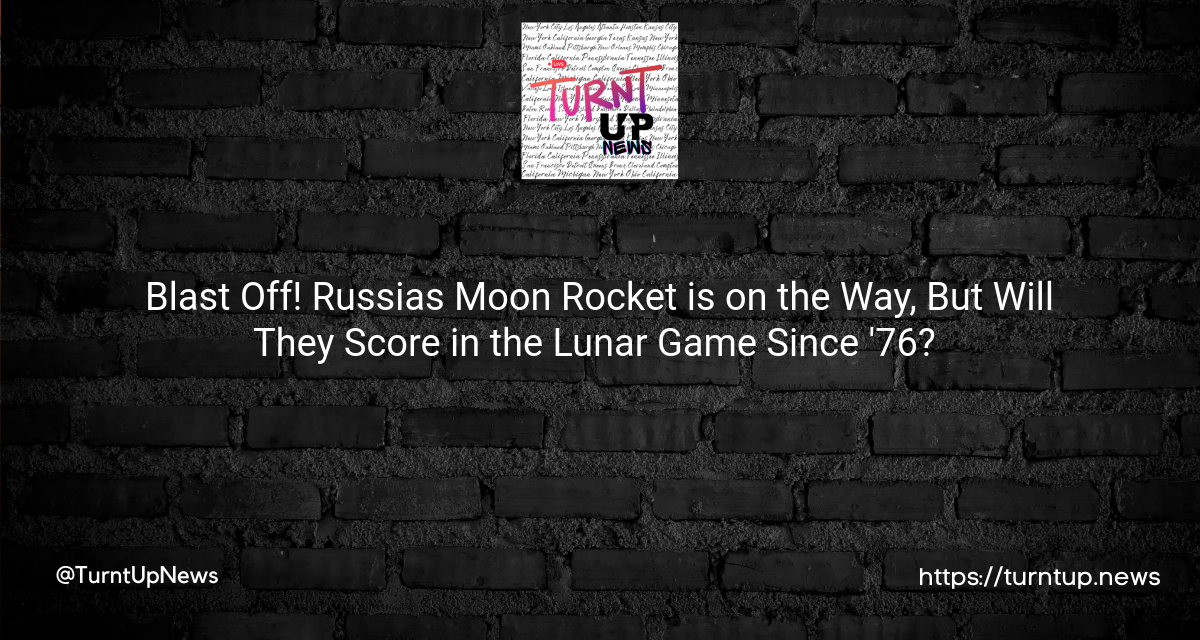🚀 Blast Off! Russia’s Moon Rocket is on the Way, But Will They Score in the Lunar Game Since ’76? 🌕
TL:DR; Russia has launched its Luna-25 mission, hoping to make its first successful moon landing in nearly 50 years. The mission’s objective is to land near the moon’s south pole and explore geological samples and signs of water. Despite previous failed attempts and hurdles like sanctions and the war in Ukraine, Russia hopes to prove that it can still participate in the “Brain Olympics” of space exploration. 🧠🥇
Disclaimer: The following article is based on factual information and does not contain any form of advice or recommendations related to investments, health, or legal matters.
The Lunar Comeback 🌖
Russia’s Luna-25 mission has taken off, aiming for a historic moon landing that hasn’t been achieved by the country since 1976. So, what’s the big deal, and why now?
After previous failures, such as the Mars-96 in 1996 and Phobos-Grunt in 2011, Russia is eager to showcase its expertise in the space field. But can they pull it off this time? 🤔
The Luna-25 mission aims to land near the moon’s south pole, a region with tantalizing signs of water and one of the least-explored surfaces. The discovery could be a game-changer for future colonization. Cool, right? 😎 But it’s not just about finding water.
The Stakes and The Race 🏁
Vitaly Egorov, a space exploration blogger, dubs this a “Brain Olympics” – a peaceful competition among nations testing technology, scientists, and economies. With India’s Chandrayaan-3 also exploring the same region, does this spark a new space race, or is there enough room for everyone? 🌌
It’s not just about prestige but survival. Sanctions and other obstacles have crippled Russia’s space program. They had to manufacture some components domestically after being cut off from Western technology. But hey, who needs the West when you’ve got some good ol’ Russian engineering, right? 😅
The Mission and The Future 🔮
The Luna-25 lander, equipped with a robotic arm and scientific instruments, is on a year-long mission. But what does it mean for Russia’s future in space exploration?
Tougher sanctions and potential shortages may limit Russia’s ability to repeat or launch new missions without crafting homegrown alternatives. Is this a one-time show or the beginning of a new era? 🚀
Even though experts like Pavel Luzin mention that the Luna-25 mission has a psychological and propaganda role for the Kremlin, there is no denying that success would be a massive boost for Russia’s space program.
Egorov believes this mission has a higher level of success due to lessons learned from past mistakes. So, is this Russia’s space redemption arc? 🌟
Conclusion: To the Moon and Beyond! 🌑
With the Luna-25 mission, Russia is back in the lunar game. The stakes are high, the challenges are many, and the world is watching. Can they rediscover the glory of their Soviet-era space successes or end up with another “Houston, we have a problem” moment? 🚨
The race is on, not just with India but against time and political challenges. If successful, this mission could reestablish Russia as a key player in the ever-evolving arena of space exploration.
But the question remains: Is the Luna-25 mission a true comeback for Russia, or is it merely a symbolic gesture to show they still have a seat at the cosmic table? What do you think will happen, and what could this mean for the future of space exploration? 🌌💫 Your thoughts?





